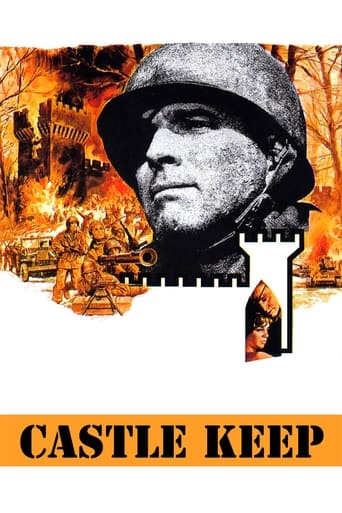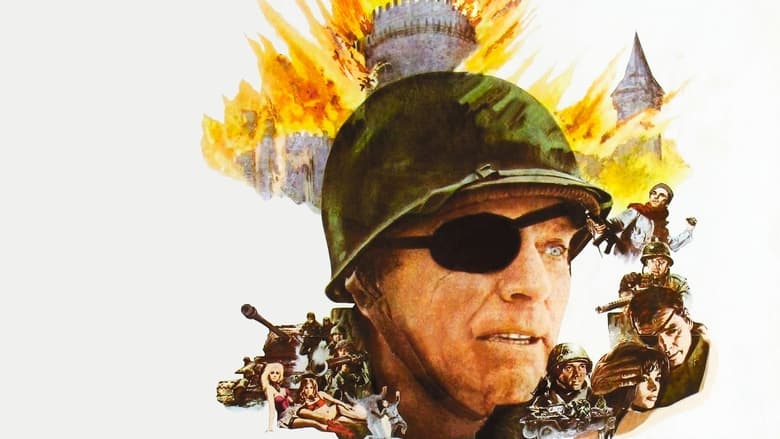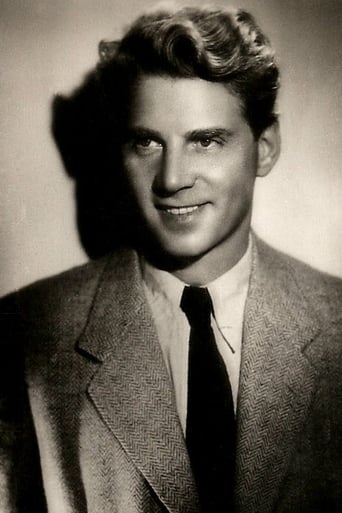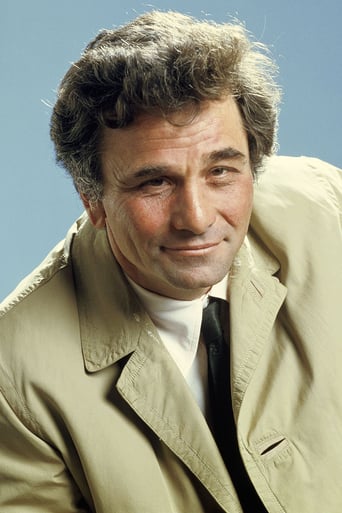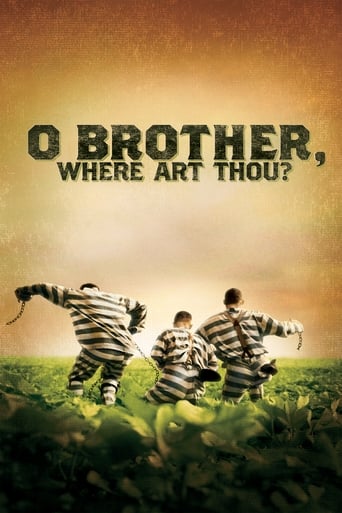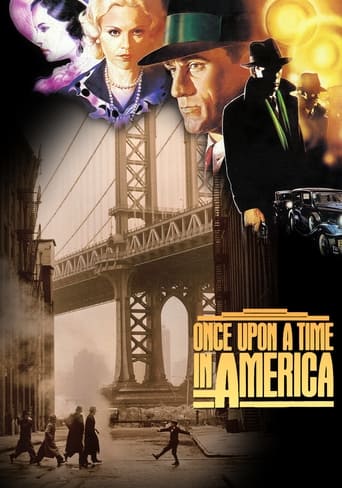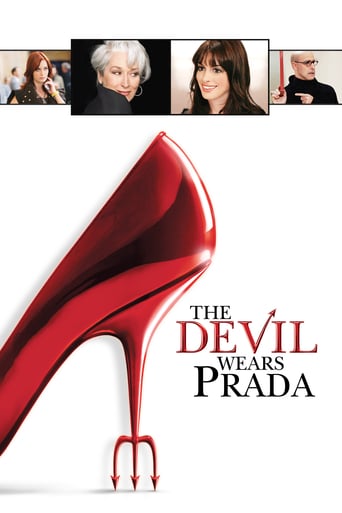Castle Keep (1969)
During the Battle of the Bulge, an anachronistic count shelters a ragtag squad of Americans in his isolated castle hoping they will defend it against the advancing Germans.
Watch Trailer
Cast
Similar titles



Reviews
Very very predictable, including the post credit scene !!!
Good , But It Is Overrated By Some
Fantastic!
The story, direction, characters, and writing/dialogue is akin to taking a tranquilizer shot to the neck, but everything else was so well done.
There are some moments in this war drama that can be constituted as classic. A discussion with soldiers over changing sexual ethics; a conversation between an American soldier playing the flute and a hidden German soldiers who offers to make it sound better. The crossing of paths with locales near the Belgian castle nearing its 1,000th birthday. Pretty scenery, interesting individual characters and some entertaining and often ironic situations. Oh, and virtually plot less.Burt Lancaster headlines as the one- eyed commanding officer, getting a historical viewpoint of the history as he plans how to get his troop out of there. Peter Falk delivers the typical cynical, acidic performance, taking the issue of the German flutist into his own hands. "I'm a soldier. That's what we do.", he says, following the analogy of the frog and the scorpion. Rarely in films about American soldiers do you see one where a character is as amoral and cold hearted as this one. Well, not until Tom Berenger in "Platoon" that is. The film hits its height nearing the end with an air attack that is quite brutal.When the plot does finally kick in (essentially their story of survival and keeping the Germans from taking over the castle), you are engrossed with what's happening, so it's easy to be inclined to think that it's a better film than it is. Going into Boris Karloff territory by basically playing exactly the same character that Karloff did in "The Last Patrol", Bruce Dern goes way over the top. Jean Pierre Aumont plays the list idealistic of the men trapped in the castle, but the least defined. This movie is just one variation of the reminder of how far the second world war reached, and instills the theory that we can't afford another one as it could be our last.
A cult film that Columbia Pictures has done the devil to bury, keeps resurfacing because of it's exceptional poetry, invention, and flawless execution - on the part of director, editor, and camera crew, but also thanks to some of the most powerful acting on film, especially from Lancaster and Falk.The writers and the director have striven hard to push the boundaries of cinematic story telling, and to do so without looking 'low budget', as many other more intellectually advanced films of the period did.In the last analysis, calling this film 'anti-war' is as inappropriate as saying that of Sam Fuller's "Big Red One". Like Fuller's film, this is simply war as it was fought - garnished, for dramatic (and comic) effect, with more than a touch of the undeniably surreal. But as Fuller made plain in his wholly realistic film, war creates just the sort of environment where the surreal happens.BTW, what made this a cult film in the first place is not any 'anti-war' message (the message is actually more 'anti-European' if you follow the dialog closely), but rather its remarkable comedic sense of the absurd, made most famous by the affair with the Volkswagen, but actually more impressive with Falk's baker (who moves in with the Belgian town's baker's wife, because, well, that's what bakers do, they live with baker's wives).All this adds up to a stunning, even shocking film, that is still highly entertaining. I suspect those that find it confusing haven't lived much life yet, or don't want to. This film is not dated in the least; it will survive all the CGI crap that Hollywood vomits up, as long as there are people who want to think and to feel while watching a film.
Travelling through Ardennes forest, American Major Falconer leads his small rag-tag platoon to the medieval castle that belongs to the Count of Maldorais, so they can use it as a stronghold against the German soldiers. Waiting for this possible strike, they go about amusing themselves by relaxing or taking in the sights. The Major is bedding the Counts wife, Captain Beckman studying and admiring the count's artwork, Sergeant Rossi living his dream of having wife, child and baking. Private Benjamin storming up ideas of a possible novel, while Corporal Clearboy falls head over heels for a Volkswagen. But their lifestyles are shattered when finally the Germans advanced through the forest and upon the castle.You want a very offbeat and ambitious war drama; look no further then Sidney Pollacks' dreamlike majestic oddity "Castle Keep". However it tends to be one of those cult films you'll love or be totally put off by its artsy approach. I'm the former. I was totally spellbound by its quirky, bleak and theatrical sense of style interwoven within its lyrically verbose script and moody, self-conscious characters. Adapted from William Eastlake's novel, this is pretty much a calm conversational piece that likes to philosophically reflect on itself with a haunting and decisive charge, before it changes pace (and somewhat direction) to actually lead up to a loud, chaotic, brutal and taut action climax in the dying stages of the film.Pollacks' smooth n' breezy execution leads the way to a slow plodding pace, where it's a clash of personalities and a lot little trivia set in motion. War is pointless and simply made up of absurdity, and that's how Daniel Taradash and David Rayfiel's thoughtfully satiric screenplay lets the story unfold, because honestly it treads water and doesn't sway far from its base work. Seeping off it are random, unexpected sub-plots (like fairy-tale strokes) with Private Benjamin's crisp narration (which it's his story were watching) seem to have a metaphysical current. The rich humour within is uniquely pulled-off, by holding an uncanny, absurd and odd feel. Beautifully crafted and ultra-stylish with many bold and surreal flourishes. One of those few includes the sequence in the rose garden and the wonderfully amusing set-up of the Volkswagen. It was like looking at a painting, just admiring the art in front of you. Then move onto the next frame for another poetic image. But the life is sapped out of it, with more so a deadpan quality making its way into Pollacks' slick direction.Henri Decae's fluidly illustrative cinematography was picture-perfect with atmospheric lighting, and Michel Legrand's harmoniously spiralling and intrusively baroque music score only adds to its disorienting make-up and cooks up a tuneful awe. Streaming through it was a bold, psychedelic edge due to the times. The beautifully lush backdrop of the wilderness, and grand appearance of the extravagant castle are vibrantly captured to provide another hypnotic dimension to the well-looking production. The performances are astounding. Burt Lancaster's stoically dominating portrayal, with a smart slight tongue is excellently delivered and Peter Falk's no-nonsense, grounded to reality performance is superb as the baker at heart Sergeant Rossi. Don't you just love the smell of fresh bread. Patrick O'Neal is credibly solid as the toey, art-loving Captain Beckham, and Jean-Pierre Aumont as the sly Count of Maldorais. Astrid Heeren is seductively silky as the count's wife/niece Therese. The rest of the support Scott Wilson, Tony Bill, James Patterson, Al Freeman Jr. and Michael Conrad were exceptionally good. Also Bruce Dern is a delight to watch as the fruity, preaching American deserter who has taken up on god's side, as he tries to convince others to do so.Uneven, but still a one-of-a-kind experience. Almost just like a dream.
I had been wanting to check this one out for over 20 years (it used to be available as a VHS rental at the local outlet but I never got around to it) but especially after reading up on the film on the internet since its 2004 DVD release(s) where its unusual "artiness" a'-la Alain Resnais' LAST YEAR IN MARIENBAD (1961) was played up. Now that I've watched CASTLE KEEP for myself, all I can say is that it's arguably the strangest mainstream war movie ever and decidedly not for all tastes!The relatively large cast (for what turns out to be an introspective film) is uniformly excellent and is well up to the requirements of the brilliantly surreal, funny and literate script; Burt Lancaster, wearing an eye-patch throughout, has an unsympathetic role as the formidable leader of a group of misfit soldiers taking over a Belgian castle against unseen invading German troops. He is skillfully abetted by Peter Falk (as a soldier who abandons his post to indulge in his vocation as a baker), Jean-Pierre Aumont (as the "degenerate" owner of the titular castle), Patrick O'Neal (as a celebrated art historian all at sea on the battleground but well in his element surrounded by the castle's objets d' art), Scott Wilson (as a soldier who gets into quite a unique relationship more on this later), Tony Bill (as the most spiritual of the men) and, the other side of the coin, Bruce Dern as a Bible-thumping conscientious objector who walks the Belgian rubbles with his ragged band of revivalist deserters-followers. The terrific cinematography of the awesome European locations courtesy of Henri Decae is complimented by a fine Michel Legrand score and, when they finally come, spectacular battle sequences.But it's the odd, surreal touches including Scott Wilson falling in love with a Volkswagen, the same car rising from the sea after it has been drowned by his envious companions and floating ashore all by itself, the moving sequence between Tony Bill and an unseen German soldier (subsequently needlessly shot by Peter Falk) where the latter teaches the former how to play the flute correctly, the unusually realistic talk of fornication, sexual organs, impotence, the ambiguous (perhaps ghostly) nature of the characters involved and the events being enacted, etc. which really make this show stand out from the crowd of WWII spectaculars and stick in one's memory not to mention endear it to its legion of fans (who have famously decried online its original abominable pan-and-scan DVD incarnation, forcing Sony to re-release it in the correct Widescreen aspect ratio a mere four months later). The theme of the relevance of art in times of war brings forth comparisons to John Frankenheimer's THE TRAIN (1964), also starring Burt Lancaster, whose third (and final) collaboration with director Sydney Pollack after the previous year's THE SCALPHUNTERS and THE SWIMMER (where Pollack replaced original director Frank Perry but goes uncredited) this proved to be perhaps as a result of the critical beating the film received upon its original release!
